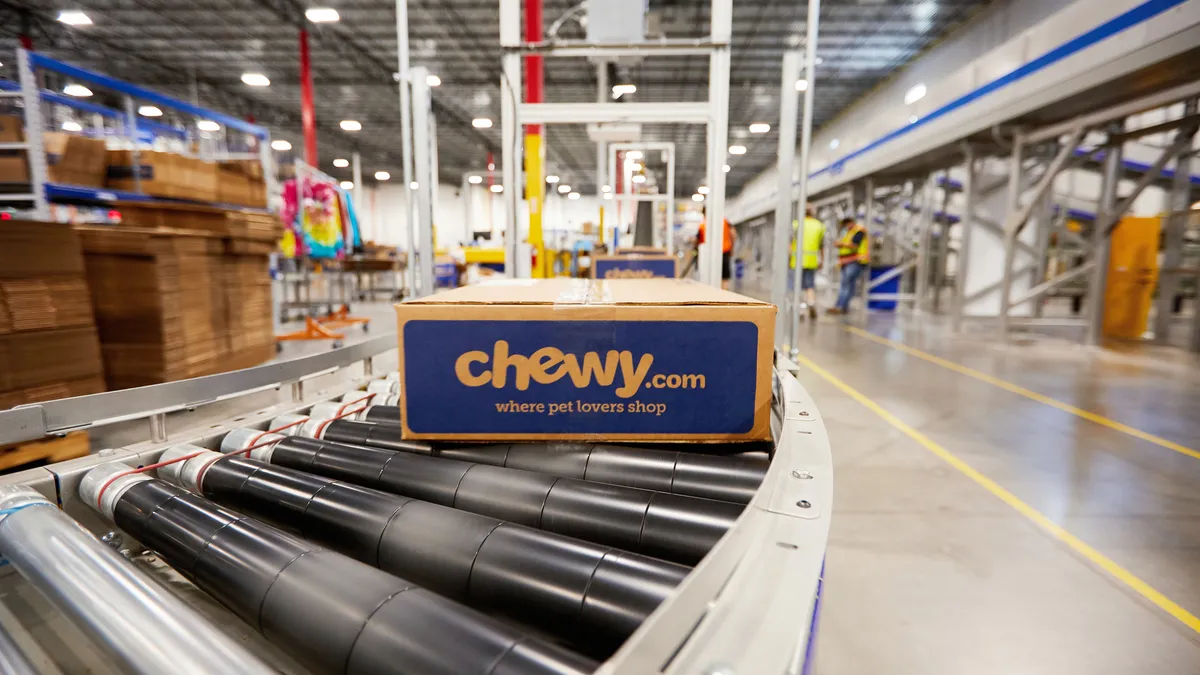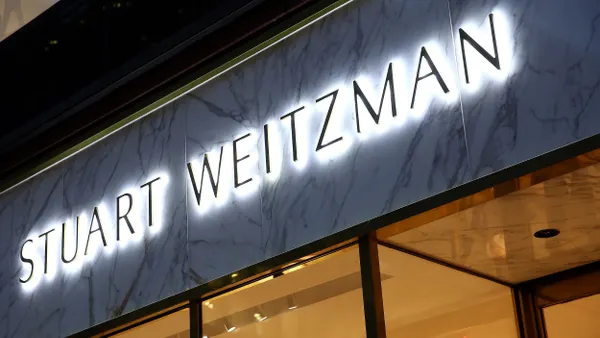Chewy opened its third automated fulfillment center in July as the company's fulfillment network continues to increase its shipping capacity, CEO Sumit Sing said on a Q2 earnings call this week.
The Reno, Nevada facility is expected to take half the time to reach full operational capacity compared to its first facility in 2020, CEO Sumit Singh said on the call.
So far, Singh said the fulfillment centers have helped to lower costs while increasing shipping volume. Nearly 25% of Chewy’s freight volume shipped from its first two automated facilities last quarter, at an approximately 15% lower unit-level cost compared to the company’s legacy network, he said.
“As we expand our network of automated FCs, these facilities are handling an increasingly large share of our outbound shipment volume, and they are doing so at progressively lower variable costs per package,” Singh said.
The Reno facility is the second of three automated fulfillment centers the retailer set out to build over a 12 month to 14 month period last September to improve productivity and reduce the effects of labor shortages.
Another facility is slated to begin operations in Nashville, Tennessee this fall, following the opening in Reno and the launch of a location in Kansas City, Missouri. The first of Chewy’s four automated fulfillment center opened in Archbald, Pennsylvania in 2020.
At the time of the first launch, Chewy Vice President of Operations Mike Gilbert said he expected the automated facility to bring greater operational efficiency, improved picking accuracy and lower fulfillment costs, as well as reduced warehouse traffic and heavy lifts for workers.
Many retailers are investing more in fulfillment automation to keep up with soaring e-commerce demand. Last year, Walmart announced it would scale automation throughout its e-commerce fulfillment network to expand capacity.
At this time next year, Singh said the company expects a third of its outbound volume to ship from automated facilities.
“The benefits from automation continue to expand across our network and our pace of realizing these benefits continues to accelerate,” he said.
The pet supply retailer also plans to continue its investments in Chewy Freight Services, its in-house linehaul fleet, which has seen significant growth, Singh said. The service tripled its volume last quarter, contributing to a reduction of costs and better on-time delivery performance, he told investors.
“Combined, these automation and transportation initiatives are generating savings in cost per package and improvements in delivery performance and customer experience,” the CEO said.















